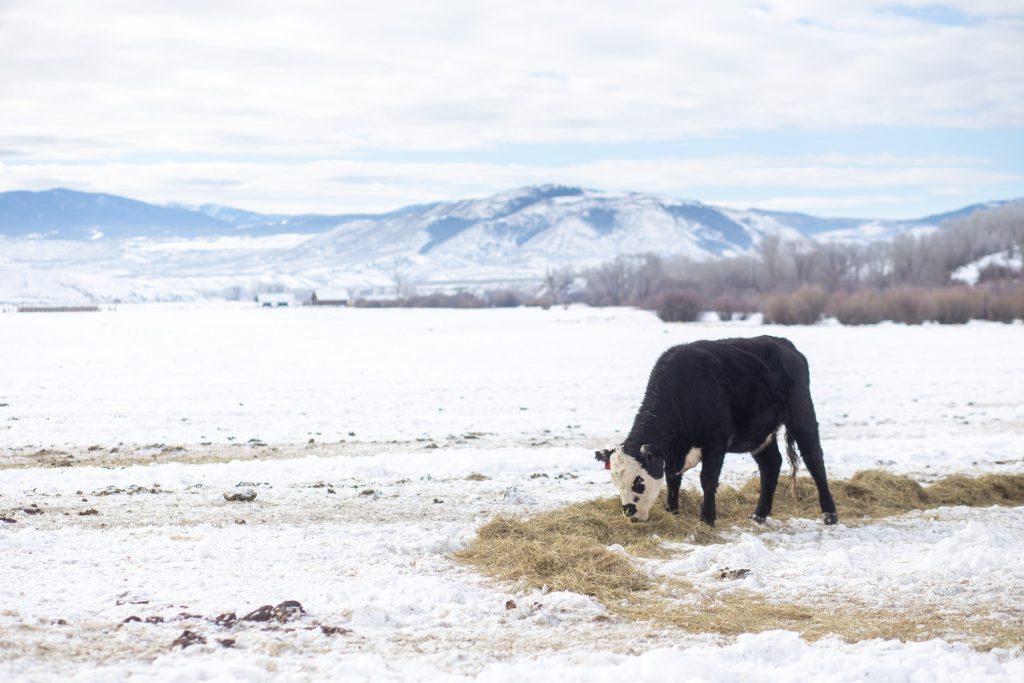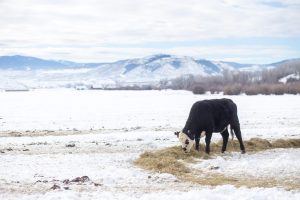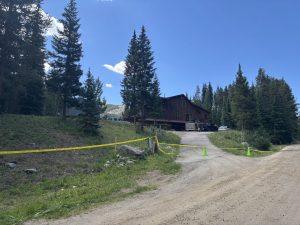Rancher-administered vet care for wolf-related injuries in Colorado is now eligible for compensation
Rule change addresses an oversight in how Colorado Parks and Wildlife was compensating producers for wolf-related livestock losses

Andrew Maciejewski/Summit Daily News
Colorado ranchers are now eligible to receive compensation for veterinary care they administer to livestock and livestock guardian animals following wolf attacks.
Previously, producers were only eligible to be reimbursed for care administered by “licensed veterinarians” following a confirmed wolf attack. However, a claim brought to the Colorado Parks and Wildlife Commission by a North Park rancher this spring caused the agency to review its regulations for wolf-related compensation.
In the claim, Don Gittleson requested $435 in reimbursement for vet care that he personally administered to an injured cow under the guidance of a licensed veterinarian. The claim dealt with two confirmed wolf-related attacks on his Walden ranch last year. Gittleson said that the decision to treat the injured animal himself was not only more cost-effective but a necessity due to the limited access to vet care in the more rural parts of Colorado.
An issue paper presented at the commission’s August meeting called it an “oversight” from when the agency’s wolf compensation rules were written in 2023.
The Colorado Parks and Wildlife Commission unanimously approved a regulatory change at its Thursday, Oct. 9, meeting that rectified this.
Under the new rule, producers can now receive reimbursement for labor expenses related to treating wolf-caused injuries to livestock and animals that herd or guard them. Producers must provide proof that the treatment was administered under the guidance of a licensed veterinarian.
It’s a change that better reflects the “reality of how most livestock owners actually do care for their animals when they’re injured,” said Jay Tutchton, a Parks and Wildlife commissioner who also works as the preserve manager at the Southern Plains Land Trust in Lamar and oversees its bison herd.
“This is just the way veterinary care is provided in rural areas,” Tutchton said. “The animals that I manage are 34 miles from the vet, and it would be prohibitively expensive to take them there, and they’d have to have a place to put them. It would be a massive undertaking, and so the vet just tells me what to do and gives me the materials to do it with.”
Commissioner Dallas May commented that the rule change would benefit everyone involved in the state’s reintroduction of gray wolves.
“It will reduce the cost to the state of all of this. … It will make a better situation for the wolves on the landscape, and it’ll make a better situation for producers who are trying to do the right thing to mitigate this,” May said.
Gary Skiba, representing the San Juan Citizens Alliance and who also serves on the board for the Rocky Mountain Wolf Project, which helped usher forward the state’s reintroduction of gray wolves, said the two entities he represents are supportive of the change: “We think that it makes a whole lot of sense, both economically for the state and for producers.”
Skiba is also a retired Parks and Wildlife wildlife biologist who also served on the agency’s commission for under a year before resigning following public outcry from hunting and producer groups.
Vet care is just one of the expenses that Colorado producers can be reimbursed for under its wolf compensation program.
Parks and Wildlife reimburses ranchers for not only direct losses of livestock and working dogs by wolves, but also indirect losses related to the predator’s presence on the landscape — the latter of which can include impacts on livestock conception rates and weight. Ranchers can also receive compensation for missing livestock in large, open-range settings once a wolf depredation has been confirmed. Ranchers are eligible for compensation up to $15,000 per animal from the state’s Wolf Depredation Compensation fund.
With the change, producers can now receive up to $15,000 or the fair market value of the animal, whichever is lower, for veterinary care. This can be applied to not only professional fees and medical supplies, but also for hourly labor expenses — capped at $20 an hour — and medical supply expenses incurred by a producer following the guidance of a licensed veterinarian.
Since reintroducing gray wolves in December 2023, Parks and Wildlife has confirmed 37 wolf-related depredation events in Colorado. This includes 17 this year in Jackson, Pitkin, Eagle, Routt, Gunnison, Grand and Rio Blanco counties. As of Sept. 30, the agency has approved $610,259.29 in compensation claims from producers related to wolf depredations, according to Luke Perkins, a spokesperson for Parks and Wildlife.

Support Local Journalism

Support Local Journalism
As a Summit Daily News reader, you make our work possible.
Summit Daily is embarking on a multiyear project to digitize its archives going back to 1989 and make them available to the public in partnership with the Colorado Historic Newspapers Collection. The full project is expected to cost about $165,000. All donations made in 2023 will go directly toward this project.
Every contribution, no matter the size, will make a difference.









